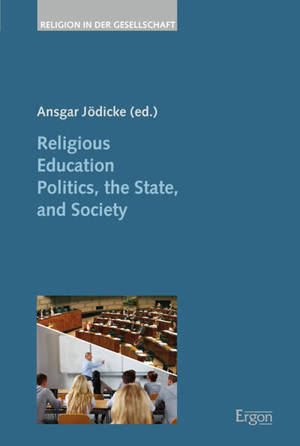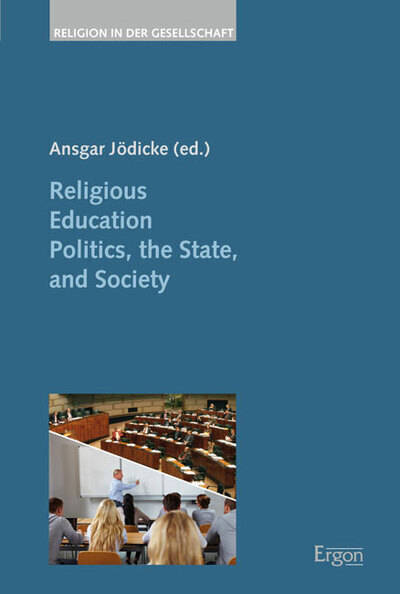
- Afhalen na 1 uur in een winkel met voorraad
- Gratis thuislevering in België vanaf € 30
- Ruim aanbod met 7 miljoen producten
- Afhalen na 1 uur in een winkel met voorraad
- Gratis thuislevering in België vanaf € 30
- Ruim aanbod met 7 miljoen producten
Zoeken
Religious Education Politics, the State, and Society
€ 35,45
+ 70 punten
Omschrijving
The state's religious education policies are part of the public negotiation of the role of religion in society. During the second half of the twentieth century, the state's education policy has been increasingly influential in the realm of religious education in schools. This development is instructive for the social analysis of religion in contemporary societies for two reasons: First, it offers insights into the politics of religion, and second, it reveals that the state's decisions on school politics touch on religious issues.The authors of this volume analyse the social significance of the state's activities concerning school religious education classes. The contributions deal with case studies from Armenia, Denmark, Germany, France, Italy, Iran, Canada, Sweden, Switzerland and Turkey. The authors scrutinise three aspects of the state's politics: First, the role of the state's politics of religion; second, the attitude and reaction of religious communities towards the state's policies; and third, the influence of public religion-and-state discourses on the religious education politics.
Specificaties
Betrokkenen
- Uitgeverij:
Inhoud
- Aantal bladzijden:
- 216
- Taal:
- Engels
- Reeks:
- Reeksnummer:
- nr. 35
Eigenschappen
- Productcode (EAN):
- 9783899139549
- Verschijningsdatum:
- 31/12/2013
- Uitvoering:
- Paperback
- Formaat:
- Trade paperback (VS)
- Afmetingen:
- 159 mm x 230 mm
- Gewicht:
- 398 g

Alleen bij Standaard Boekhandel
+ 70 punten op je klantenkaart van Standaard Boekhandel
Beoordelingen
We publiceren alleen reviews die voldoen aan de voorwaarden voor reviews. Bekijk onze voorwaarden voor reviews.










